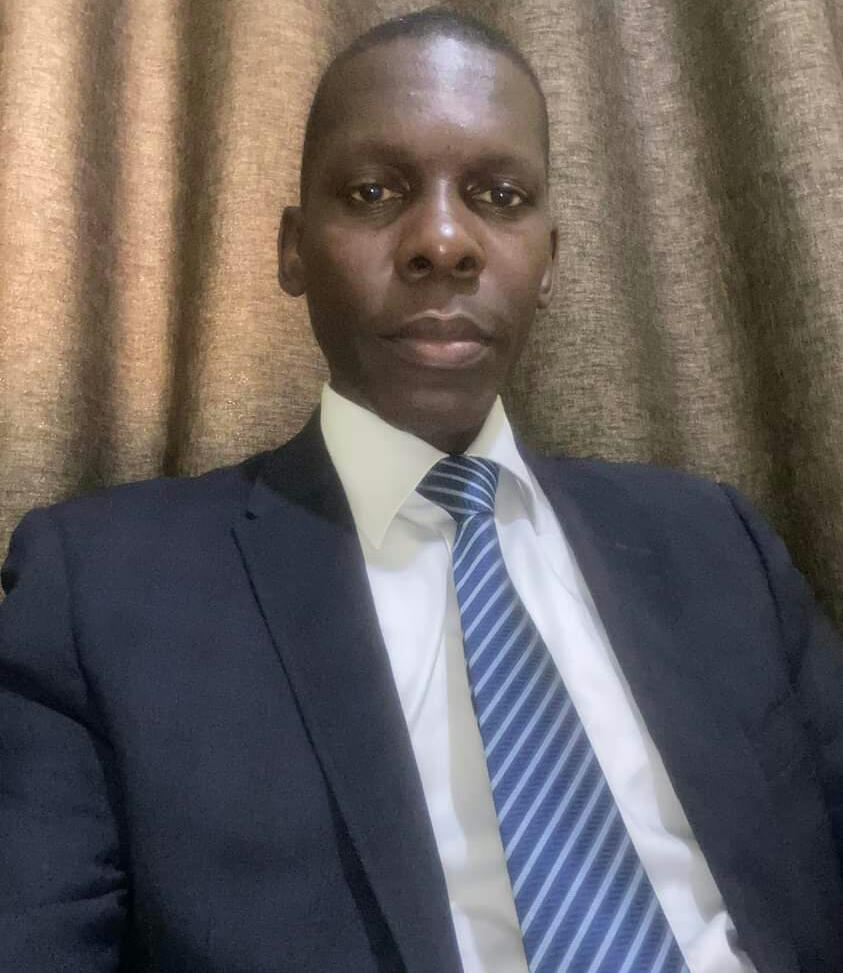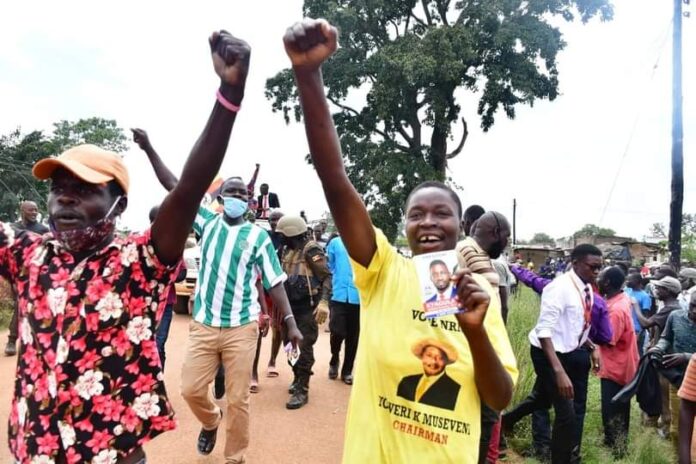PHOTO: A woman wearing an NRM T-shirt with President Museveni’s poster gestures as she attends NUP Presidential candidate Bobi Wine’s 2021 Prrsidential campaign rally in Amuru District (File Photo)
● In these two serialisation, i will address a precise history of the pre-colonial set up of African states and the burgeonment of electoral systems in modern Africa, Uganda a case study and the deception elections have occassioned to bolster poverty in Africa
OPINION BY LAWYER
DENIS WILLIAM NYOMBI
WHAT we have as modern polities in were previously run and administered as kingdoms and chiefdoms
In central Africa, for example, was the The Kingdom of the Kongo. This rose to power at the end of the 1300s. It ruled a large area of Central Africa until 1914 when it became a colony of Portugal.
There was also the Kingdom of Luba, which was formed in 1585. It ruled a large region in the modern-day country of the Democratic Republic of Congo, (DRC) up until 1889.
Then there was a Kingdom of Mutapa, which ruled a large region in Central Africa in the modern-day countries of Zimbabwe and Mozambique. It was first established in 1430 by a warrior leader from the Kingdom of Zimbabwe.
In west Africa the Mali Empire was an empire in West Africa from c. 1235 to 1670. The empire was founded by Sundiata Keita and became renowned for the wealth of its rulers, especially Mansa Musa.
In present day Niger, Cameroon, Central African Republic, Chad and Nigeria was the kanem Bornu Empire .
Further, in 1701 to 1901, in what is now modern-day Ghana, was the Kingdom of Asante. (There is a common factor between the kingdom of Asante and Buganda – the Asantehene and the Kabaka of Buganda – Muteesa are the two leaders who were the first to drive a Rolls Royce each in Africa )
In South Africa, was the small kingdom that gained world fame during and after the Anglo-Zulu War, initially defeating the British at the Battle of Isandlwana in 1879 – The might Zulu Kingdom.

AUTHOR: Counsel Denis Nyombi
In East Africa The Nyamwezi, Baganda Etc, were the agregates that formed the precolonial states. All these and more were the face of Africa. The emergence of colonial rule later, brought in the colonial administration and a new geographical order (the Berlin conference 1885) that saw the re draw of boundaries of most states and a birth of a new political identity.
Modern day Electoral processes, started soon to the grant of indepence to various countries by the colonia masters especially the British.
In Uganda, this was in 1958 during the Legislative Council (LEGCO) elections, the curtain raiser to Uganda’s independence and electoral process at large. This was an election run under The Legislative Council (Elections) Ordinance, No. 20 of 1957 passed on October 16, 1957.
In March 1961, the Colonial Government organised direct elections, in which two political parties- the Democratic Party (DP) and the Uganda People’s Congress (UPC) contested. These eections were however boycotted by Buganda Kingdom which insisted on its demand to have its representatives elected by the Lukiiko. The Lukiiko according to my S.2 History teacher Madam Nakibuuka (RIP), is the local legislative assembly of Buganda Kingdom.
DP won the elections with 43 seats, while UPC got 37 seats; as a result, DP formed the first ever internal self-government, headed by the Chief Minister, Benedict Kiwanuka (BEN).
However, the 1961 elections were considered unrepresentative because of the boycott by Buganda; hence the Colonial Government organized fresh elections in 1962.
Buganda Kingdom was granted its request to hold indirect elections and its Lukiiko nominated 21 representatives to the National Assembly, who represented the Kabaka Yekka (KY) Party.
On 25th April 1962, the Colonial Government organized the National Assembly Elections, in which DP won 24 seats, while UPC won 37 seats. UPC made an alliance (omukago) with KY Party who had 21 representatives, and formed a UPC-KY government, headed by UPC’s Milton Obote as the first Prime Minister of Independent Uganda.
The 1962 elections were the last elections in Uganda until 1980
……….(to be continued in part 2)
Denis William Nyombi is a lawyer and political analyst


